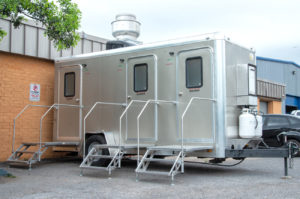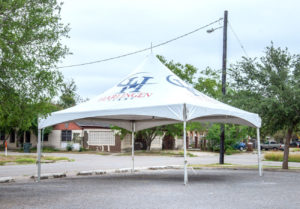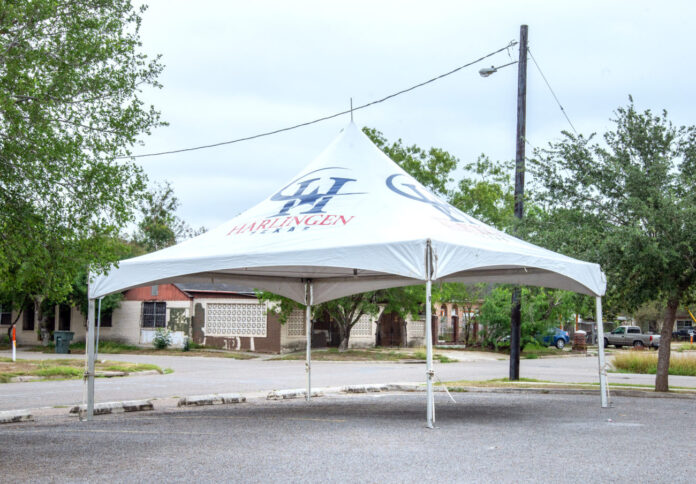HARLINGEN — A man pulled his pickup truck into the parking lot of Loaves and Fishes’ homeless shelter, rolling down his window to ask a question.
“I’d like to know if you have room for one man,” the man asked from under his facial covering at about 11 a.m. Tuesday.
“The tent,” Bill Reagan, the shelter’s executive director, told him, pointing to a tall, white canopy standing at the edge of the parking lot.
“No more room,” Reagan told him, referring to the homeless shelter, before the man drove away.
Now, Reagan is taking painful steps to keep the coronavirus out of the city’s homeless shelter.
Inside, he’s separating beds six feet apart to comply with federal guidelines aimed at preventing the spread of the COVID-19 virus.


By Monday, Reagan had a full house in the men’s shelter, with 25 men taking up its beds.
So he set up the canopy emblazoned with Harlingen’s logo on the parking lot’s edge.
On Monday night, three men slept on cots under the tent.
“We bring the cots in in the morning and sanitize them,” Reagan said.
Across the parking lot stands a mobile unit offering showers.
Next Tuesday, Reagan plans to move the cots into a long, enclosed tent, a local business man’s donation.
“We’ll be doing this as long as we need to,” Reagan said as a cool breeze blew across the parking lot.
‘Vulnerable population’
In parts of the country, the COVID-19 virus has infected homeless shelters.
“There may be people who are homeless who have the virus,” Reagan said. “The homeless people are vectors of the disease. They don’t have adequate nutrition, they smoke, some take drugs. Many have been on the streets for years and their immune systems are compromised. Once it gets in the homeless population, they’re infecting other people. They’re out in the park, they’re in the stores, the gas station. We can’t let them in because the ones inside are well.”
Women’s shelter
In the women’s shelter, five beds remain open.
So Reagan is screening women for the virus as they stop by to ask for a place to stay.
“We take their temperature and ask, ‘Do you have a headache, do you have shortness of breath, dry cough, fatigue? Have you been around anyone with symptoms?’”
Painful decisions
For Reagan, protecting the shelter has led to painful decisions.
“I’m up all night, every night,” he said. “All I can do is try to anticipate the next thing that could happen. I’m responsible for staff, for the people who come to eat and stay in our shelter. I’m just doing what I can to keep us from getting the virus.”
“All we’re doing is mitigating it. I just hope by taking these steps we’re doing our part to mitigate it in Harlingen.”




